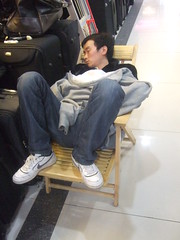Search
PA to require public-works contractors & subcontractors to use E-Verify
 Last week, Governor Tom Corbett (R) signed the Public Works Employment Verification Act. The Act goes into effect on January 1, 2013, and will require contractors and subcontractors on PA public-works projects to confirm the employment eligibility of newly hired workers using the federal E-Verify program. E-Verify is a free Internet-based system that allows businesses to determine where employees may legally work in the United States – either U.S. citizens, or foreign citizens who have the necessary authorization.
Last week, Governor Tom Corbett (R) signed the Public Works Employment Verification Act. The Act goes into effect on January 1, 2013, and will require contractors and subcontractors on PA public-works projects to confirm the employment eligibility of newly hired workers using the federal E-Verify program. E-Verify is a free Internet-based system that allows businesses to determine where employees may legally work in the United States – either U.S. citizens, or foreign citizens who have the necessary authorization.
A first offense will result in a warning. A second offense will result in 30-day debarment from public work and a small fine. All subsequent violations will get you a public-work bar of between 180 and 365 days. Any willful violation may result in a 3-year public work ban.
Moreover, the Department of General Services of the Commonwealth will be conducting both complaint-based and random audits of covered employers to determine compliance with the Act.
 The Employer Handbook Blog
The Employer Handbook Blog








